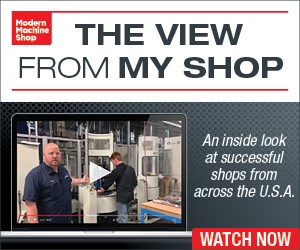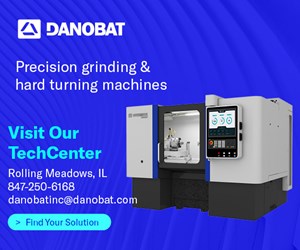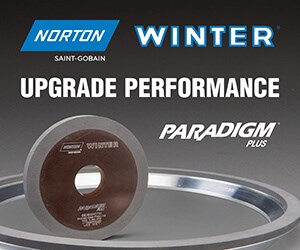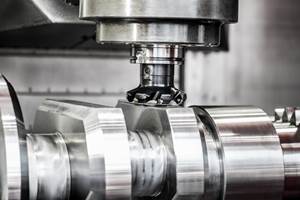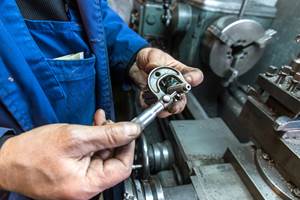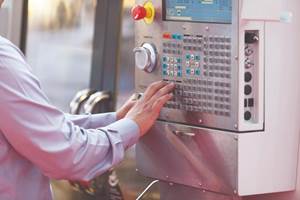Manufacturer Takes Steps To Be More Customer-Centric
Foremost Manufacturing, located in Union, New Jersey, is one of those companies that recognize that being “good enough” just isn't good enough. With this in mind, Foremost has embarked on a program to transform itself into a manufacturing enterprise with an unwavering focus on customer service.
Foremost Manufacturing, located in Union, New Jersey, is one of those companies that recognize that being “good enough” just isn't good enough. With this in mind, Foremost has embarked on a program to transform itself into a manufacturing enterprise with an unwavering focus on customer service.
Foremost Manufacturing makes lighting reflectors and other fabricated metal products. In simple terms, the company is a forming and finishing shop; however, there is nothing simple about its processes. Starting with flat disks approximately 0.050-inch thick, the company uses metal spinning technology to produce thin-walled, complex shapes up to 24 inches in diameter. These shapes are then finished to produce highly reflective surfaces that illuminate stores, libraries and homes.
Foremost has been in business for more than 40 years, during which time it has prided itself on being the best. Today, it recognizes that being the best requires continuous improvement. To assist in its transformation, the company brought in some fresh management to help ensure that continuous improvement was more than just a phrase.
The driver of the company's transformation is its CEO, Herb Schiller. With increased competition, a volatile market and everchanging technology, Mr. Schiller realized things could no longer be business as usual. “Our core customers demand perfect quality, lead times measured in days, high mix, and cost control," says Mr. Schiller. “If they don't get it, they'll accept somewhat less on the first three parameters and get product for half the cost from overseas. But they don't want to.”
One of the key management additions was the company's new Director, Karl Thorndike. At one time Mr. Thorndike worked for one of Foremost's customers and was intimately familiar with the workings of the organization. Not only did Mr. Thorndike know Foremost, but he also had experience helping companies become more customer-focused. “Foremost used to think of itself as a manufacturer of certain classes of shapes dependent on corresponding equipment and processes," Mr. Thorndike says. “We're transforming ourselves into a company that serves the needs of a tightly defined market segment. Once you change that perspective, our marching orders become clear. We now drop shop reflector assemblies to our customers' job sites, within days, greatly simplifying the supply chain and eliminating all sorts of wastes.”
One of the first priorities of the “new Foremost” was reducing the leadtime of its products. The products were good, but it took too long to get them out the door. One of the causes of shipping delays was the multi-operation processing of parts. Mr. Thorndike and his team set about moving machines to be closer together so that a spinning machine operator could perform secondary work during the spin cycle time. Presses and cutting machines were repositioned next to spinning machines to form U-shaped cells that could fabricate a complete part.
Having seen first-hand the benefits of a well-organized workplace, Mr. Thorndike arranged for the entire company to undergo 5S training. This system, which is an acronym for sort, set-in-order, shine, standardize and sustain, teaches improved workplace organization through maintaining only what is needed at the workstation in properly designated locations. A number of work centers implemented 5S concepts and reduced some of the time being wasted trying to find tools, equipment, supplies and more.
Like most small manufacturing companies, Foremost does not have the luxury of unlimited funding and consequently, although it's functional, some of its equipment is quite old. Realizing that everything could not be replaced overnight, Foremost began to practice Total Productive Maintenance (TPM) concepts. By documenting the causes of machine downtime, the company was able to introduce preventive maintenance actions. The key was to replace unexpected machine stoppages with planned, short duration stoppages for proper servicing. Lothar Maron, the engineering manager, was put in charge of the TPM effort. “TPM allows us to leverage and allocate our resources more effectively,” says Mr. Maron. “With TPM in place, we immediately know what, why and when something in the process changed. This allows us to reduce the troubleshooting effort, get the process back into spec quickly and increase our overall profitability.”
Despite some recent gains in leadtime reduction, throughput and cost containment, Foremost Manufacturing knows it still has a long way to go. However, with the company's continuous improvement commitment, the journey is sure to be both exciting and rewarding.
Related Content
A New Milling 101: Milling Forces and Formulas
The forces involved in the milling process can be quantified, thus allowing mathematical tools to predict and control these forces. Formulas for calculating these forces accurately make it possible to optimize the quality of milling operations.
Read More6 Steps to Take Before Creating a CNC Program
Any time saved by skipping preparation for programming can be easily lost when the program makes it to the machine. Follow these steps to ensure success.
Read MoreUnderstanding Errors In Hand-Held Measuring Instruments
Different instruments (and different operators) are prone to different errors.
Read MoreUnderstanding G27, G28, G29 and G30
Take a closer look at these reference position commands.
Read MoreRead Next
The Cut Scene: The Finer Details of Large-Format Machining
Small details and features can have an outsized impact on large parts, such as Barbco’s collapsible utility drill head.
Read More3 Mistakes That Cause CNC Programs to Fail
Despite enhancements to manufacturing technology, there are still issues today that can cause programs to fail. These failures can cause lost time, scrapped parts, damaged machines and even injured operators.
Read More








